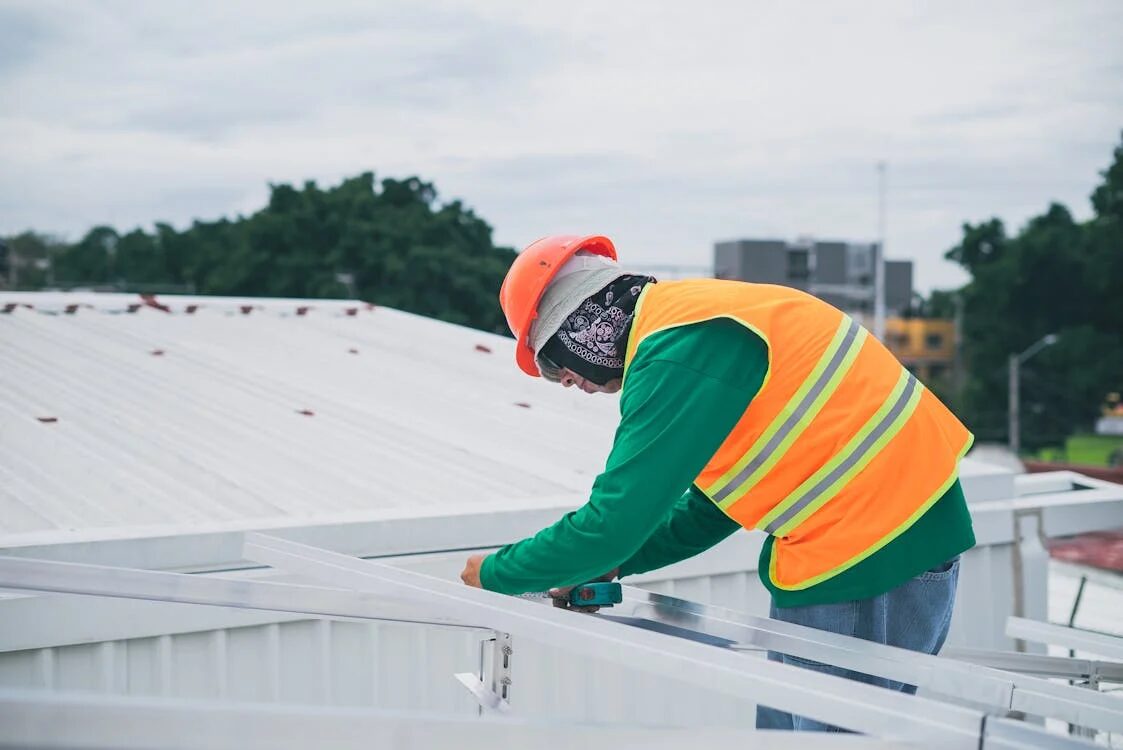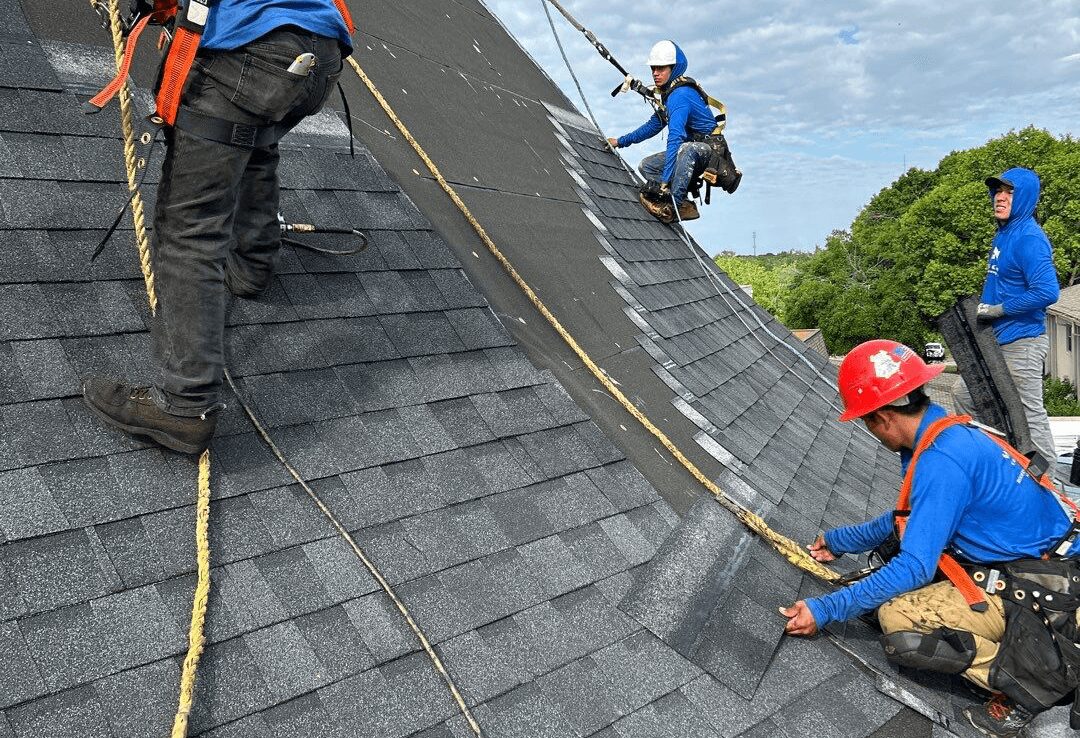Does a New Roof Affect Home Insurance In Florida?
In Florida, homeowners often replace roofs due to wear and storm damage. But how does this impact your home insurance? A new roof can significantly change your premiums, eligibility for discounts, and even your overall policy terms. Understanding these factors can help you make informed decisions about your roof and insurance coverage.
Key Takeaways
- A new roof can lower insurance premiums by reducing risk.
- Insurance companies may require specific roofing materials in Florida.
- Roofing inspections are often necessary after replacement.
- Wind mitigation features can help reduce insurance costs.
- Grants and assistance programs can offset roof replacement expenses.
How a New Roof Affects Insurance Costs
Replacing an old roof often leads to lower insurance premiums. Why? Insurance companies view older roofs as higher-risk because they’re more likely to fail during storms or develop leaks.
A newer, stronger roof reduces the likelihood of claims, which means lower costs for the insurer—and savings for you.
Using materials designed for Florida’s severe weather, like metal or impact-resistant shingles, can reduce your premiums even further. Some policies may even require these materials for coverage in hurricane-prone areas.
For more tips on preparing your home for storms, read about how to prepare your house for a hurricane.
What Roofing Materials Do Insurers Prefer?
Your choice of roofing materials can influence your insurance premiums. Here are some of the most common materials insurers look for in Florida:
1. Metal Roofing
Metal roofs are highly durable and resistant to corrosion, making them an excellent choice for coastal homes.
2. Impact-Resistant Shingles
Designed to withstand flying debris, these shingles are ideal for Florida’s frequent storms.
3. Tile Roofing
Although more expensive, tile roofs offer excellent fire resistance and long-term durability, often qualifying for premium reductions.
Looking to compare costs? Get a detailed cost breakdown to replace a roof in Florida to make an informed decision.

Why Roofing Inspections Matter
After replacing your roof, most insurers will require an inspection to confirm the work meets their standards. Inspectors assess several factors:
1. Condition and Durability
Even a new roof needs to meet durability standards to qualify for discounts.
2. Proper Installation
If your roof isn’t installed correctly, it might not pass inspection, affecting your coverage options.
3. Wind Mitigation Features
Wind-resistant features, like hurricane straps, are essential for Florida homes. Book a professional roofing inspection in Florida to ensure your new roof meets insurance requirements.
How Wind Mitigation Helps Reduce Insurance Costs
Wind mitigation reports can save Florida homeowners hundreds of dollars annually. These reports evaluate features like reinforced roof decks and secondary water barriers, which reduce storm-related risks.
Insurance companies reward homes with these upgrades through discounts or premium reductions. If your new roof includes these features, be sure to request a wind mitigation inspection.
Financial Assistance for Roof Replacement
Replacing your roof can be costly, but Florida offers several programs to help homeowners manage expenses. Exploring these options can significantly reduce your financial burden while ensuring your home is protected against Florida’s extreme weather.
1. State and Local Grants
State and local grants provide much-needed financial help for roof replacements, especially when upgrading to hurricane-resistant materials.
These programs often prioritize homeowners in storm-prone regions or those with older roofs needing urgent replacement.
To apply, you’ll typically need to meet eligibility requirements, such as income thresholds or proof of property ownership. Research local government websites to find active grant programs, as deadlines and availability can vary.
2. Nonprofit Programs
Nonprofit organizations often step in to help low-income homeowners with roof repairs or replacements. Groups like Habitat for Humanity or regional housing initiatives may offer services at reduced or no cost.
Some programs focus specifically on senior citizens, veterans, or families affected by natural disasters.
If you think you might qualify, start by contacting local community organizations or nonprofits for information about their application process and available assistance.
3. Insurance Rebates
Insurance companies in Florida frequently provide rebates for wind mitigation reports or using specific roofing materials like impact-resistant shingles.
These rebates are designed to encourage homeowners to adopt features that lower risk, ultimately benefiting both the insurer and the homeowner.
To take advantage, ask your insurance provider about rebate opportunities before starting your roof replacement project. They may also have recommendations for roofing contractors familiar with these requirements.
Explore available roofing grants and assistance for Florida homeowners to see what you might qualify for.

Tips for Choosing a Roofing Contractor
The right contractor ensures your new roof is built to last and meets insurance standards. Choosing a contractor carefully can save you time, money, and future headaches. Consider the following:
1. Licensing and Insurance
Verify that your contractor is licensed and insured to guarantee quality work. A licensed contractor ensures your project complies with local building codes, which is crucial for insurance approval.
Insurance protects you from liability if accidents happen during the job. Before signing a contract, ask to see proof of both their licensing and insurance coverage. This small step can prevent costly disputes later.
2. Customer Reviews
Look for contractors with positive reviews and strong recommendations. Online reviews on trusted platforms like Google or Better Business Bureau can give you insight into their reputation.
Pay attention to comments about punctuality, professionalism, and post-installation support. Don’t hesitate to ask the contractor for references from past clients. Speaking with previous customers can help you understand what to expect during your project.
3. Familiarity with Insurance Requirements
Contractors experienced with insurance standards can help streamline inspections and claims. They’ll know what documentation your insurance provider requires and how to address specific issues, like wind mitigation features.
Experienced contractors can also recommend upgrades that might qualify for insurance discounts. Discuss these options with your contractor to maximize the long-term value of your investment.
Planning a roof replacement? Discover durable and cost-effective options by exploring metal roofing in Melbourne.
Conclusion
A new roof is more than a necessary upgrade—it’s an opportunity to save on home insurance and better protect your home. By selecting the right materials, completing inspections, and considering financial assistance options, you can lower premiums and ensure long-term peace of mind. Take time to plan your replacement carefully, and enjoy the benefits for years to come.
Need Expert Advice on Your Roofing Project? Contact us today!
"*" indicates required fields
